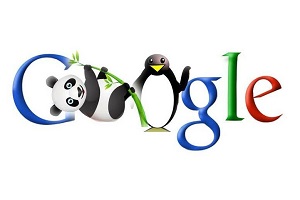Understanding The Internet
Understanding the Internet
Paraphrasing the definition of the Internet; “The Internet is the global system of interconnected computer networks that use the Internet protocol suite (TCP/IP) to link devices worldwide. It is a network of networks that consists of private, public, academic, business, and government networks of local to global scope, linked by a broad array of electronic, wireless, and optical networking technologies.” https://en.wikipedia.org/wiki/Internet
 There are two principal naming conventions on the Internet, the Internet Protocol Address (IP address) and the Domain Name System (DNS). The IP address links networks much like a phone number can reach another phone number. An IP address even looks like a phone number, for example; 69.167.6.95 is an IP address for a virtual private network. Domain names are designed for use by people to easily remember the “address” of an IP. In the example listed above, the domain name for the IP address is vyprvpn.com. Most web browsers display the uniform resource locator (URL) of a web page above the page in an address bar. URIs symbolically identifies the address of a web server or database. The URL is commonly referred to as the domain name of a website. A typical URL could look like (http://www.example.com/index.html), which indicates a protocol (http), a server hostname (www.example.com), and a web page or file name (index.html).
There are two principal naming conventions on the Internet, the Internet Protocol Address (IP address) and the Domain Name System (DNS). The IP address links networks much like a phone number can reach another phone number. An IP address even looks like a phone number, for example; 69.167.6.95 is an IP address for a virtual private network. Domain names are designed for use by people to easily remember the “address” of an IP. In the example listed above, the domain name for the IP address is vyprvpn.com. Most web browsers display the uniform resource locator (URL) of a web page above the page in an address bar. URIs symbolically identifies the address of a web server or database. The URL is commonly referred to as the domain name of a website. A typical URL could look like (http://www.example.com/index.html), which indicates a protocol (http), a server hostname (www.example.com), and a web page or file name (index.html).
Internet Defined
Many people use the terms “Internet” and “World Wide Web” interchangeably, but the two terms are not synonymous. It is common for people to say they are “online” or use “the Internet” when they are actually using a web browser to view a website, which is a collection of web pages. The Internet is a global set of web pages, documents, images, computer data, including graphics, sounds, text, video, multimedia and interactive content and other resources, logically interrelated by hyperlinks and referenced with Uniform Resource Identifiers (URIs) or domain names.
With the advent of software tools readily available, publishing a web page, a blog, or building a website involves little initial expense and many free services are also available. Most professional businesses require a web presence to succeed today. Publishing and maintaining large, professional websites with attractive, diverse and up-to-date information is remains a difficult and expensive proposition. With the high frequency of changes to search engines, the advent of mobile devices and the numerous code bases in use today, the most successful legal websites require daily updating and maintenance.
The Internet Is Bigger Than Google
Google as a search engine is at its base level nothing more than a database of people, places and things. In this digital space, the common technical term for people, places, and things is entities. Google is an entity library that currently uses artificial intelligence and machine learning to provide the best user experience. Even with the best design, the best graphics and the best content on a website, without pro-active Internet marketing, a website by itself is nothing more than a “book” on a shelf. If you think of a website as a “book” within the Google library, the objective of internet marketing is to move the “book” onto the best sellers list for that particular category. The website and the domain have no value until the site attracts an audience. Domain value increases as audience and authority grows over time. This is where Internet marketing comes into play.

A seasoned digital marketing professional with over 20 years of expertise in digital marketing, search engine optimization, search engine marketing, brand development, conversion optimization, lead generation, web development and data analytics. He is a strategic digital marketing thought leader in a multitude of business verticals including automotive, education, financial services, legal marketing and professional services.

